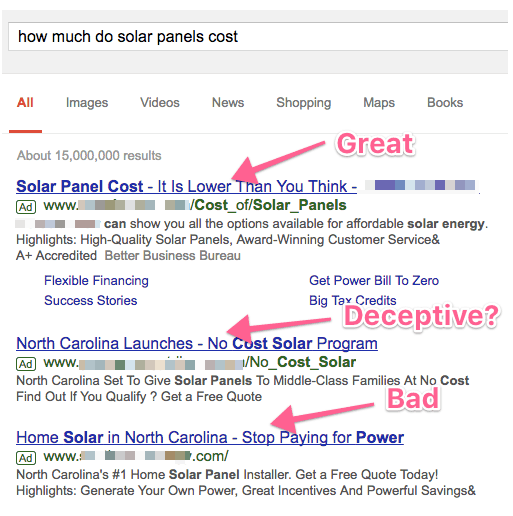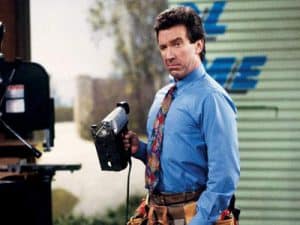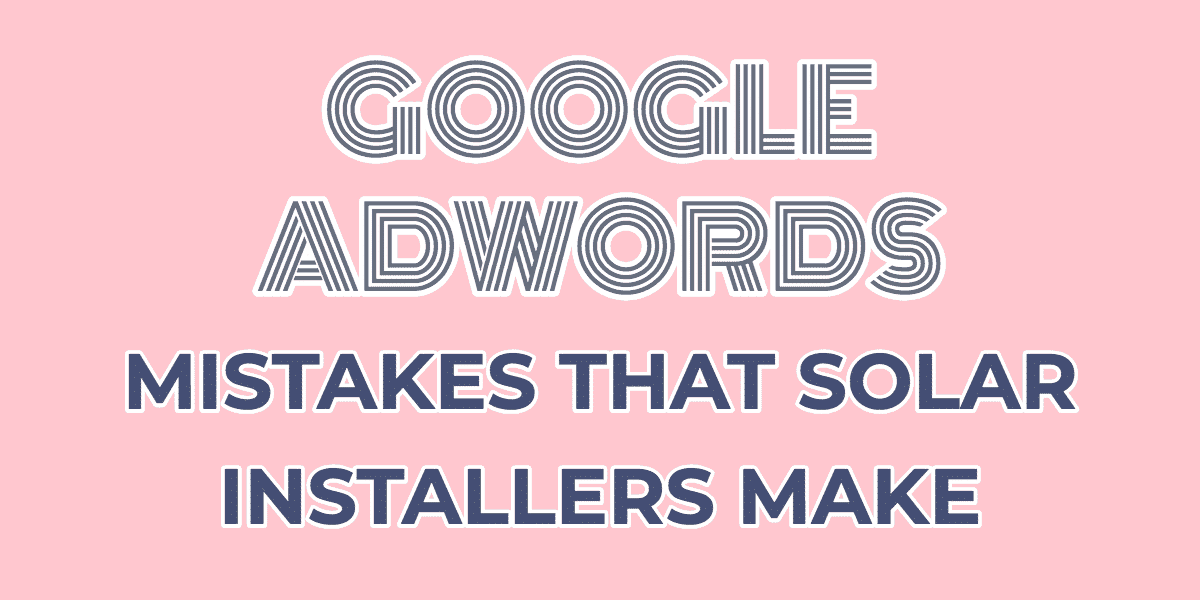Google Ads (formerly AdWords) can make or break a residential solar business.
Make one or more of these mistakes and your solar lead gen campaigns may become an unforgivable cash burn on your business.
Directing leads to a(n unoptimized) home page
Picture this: you’re the manager of a Gap standing outside your store hustling to get some customers. A man walks up and says he’s looking for chukkas.

Would you say
A) “Yup, we’ve got those.” and send him inside, immediately turning around looking for the next prospect? OR
B) “Yup, we’ve got those, by the jewelry in the back right of the store. If you have any trouble, ask for Steve. He’s great and loves those shoes.”?
It’s definitely easier to do the former. As long as you have what they’re looking for, you can answer everyone the same way.
Dresses, watches, shorts, whatever…it’s in there. Leave it to them to go find it as they’re faced with a wall of polos and a confusing layout.
But which way makes your customer feel more cared for? Which way do you think generates more sales?
It’s doubly important to do this in the internet age, as solar prospects’ attention spans may be worse than a goldfish’s.
In the real world, you wouldn’t act lazy when a valuable prospect shows interest in what you offer. Don’t do it online.
Writing generic ads
This may even be worse (read: cost you more money) than the first example. Imagine if that same person had walked up to you and asked how much chukkas cost. Would you respond with:
A) “we have chukkas” (bad)
B) “we have shoes” (worse)
C) “yes, we have clothes” (terrible)
I know this sounds ridiculous, but it’s not as far off as it seems. Take a look at the bottom ad for the search term “how much do solar panels cost.”

Ouch. That’s not answering the question at all, and they’re surely paying for it.
In contrast, there are still several items that the top bidder could improve upon, but they’re doing several things right. Most importantly, they’re directly addressing the searcher’s question. On top of that, they’re making good use of ad extensions, giving their prospects more opportunities to go directly to what they’re looking for, and giving their ad more real estate.
I wouldn’t be surprised if they’re paying less per click than the second or third spot (yes, the top spot isn’t always the one who spends the most).
Bidding on the wrong keywords
What’s the difference between home solar panels and homemade solar panels?
If you’re using Google’s default keyword settings, none.
Broad match keywords (the default) give Google great leeway in determining what search terms trigger your ads. The above keywords could also trigger diy home solar panels or free home solar panels, which unless you’re Tim “the toolman” Taylor or a philanthropist, you probably don’t want.

“The Toolman” doesn’t need your help in installing solar panels
There’s no simple answer for fixing this, and many go the costly, brute-force route of adding negative keywords to the wide net they cast.
A better way is to use a combination of phrase match and exact match keywords, especially when you’re just starting out with Google Ads, to make certain your ads are showing up exactly when you want them.
One’s loss is another’s opportunity
If your solar ad campaigns have these issues, don’t worry, you’re not alone.
We at Solariety have seen several of these mistakes in action and though it kills us (we need to get CAC down to help stop climate change!), it opens opportunity for those who know how to capitalize on it. Hopefully you take advantage!
—
If all this seems bewildering to you, give us a shout. We’re happy to extend a complimentary Marketing Strategy Session where we review where you are now, your goals, and what it will take to reach them through smart solar marketing.
To schedule this session, visit our calendar booking tool here or email us at info@solariety.com.
